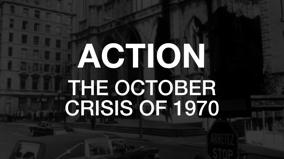New release
Coming
None
The Rise and Fall of English Montreal
1993
50 min
Leaving soon
In the past 20 years, some 300,000 English-speaking people have left Montréal, convinced they had no future in a Québec that had become increasingly French, increasingly nationalistic. In this video we meet some of the people who are moving away and recall the days, in the last century, when there were more English-speaking people than French in Montréal. The video poses a controversial question: Will the city, with its youth leaving in great numbers, become a community of the elderly, unable to renew itself?

Details
In the past 20 years, some 300,000 English-speaking people have left Montréal, convinced they had no future in a Québec that had become increasingly French, increasingly nationalistic. In this video we meet some of the people who are moving away and recall the days, in the last century, when there were more English-speaking people than French in Montréal. The video poses a controversial question: Will the city, with its youth leaving in great numbers, become a community of the elderly, unable to renew itself?
-
directorWilliam Weintraub
-
scriptWilliam Weintraub
-
producerWilliam Brind
-
executive producerDennis Murphy
-
photographyBarry Perles
-
animation cameraLynda PelleyJacques Avoine
-
soundYves Gendron
-
editingJeremiah Hayes
-
sound editingBill Graziadei
-
animationMeilan Lam
-
re-recordingShelley Craig
-
narratorVlasta Vrana
-
musicEldon Rathburn

















